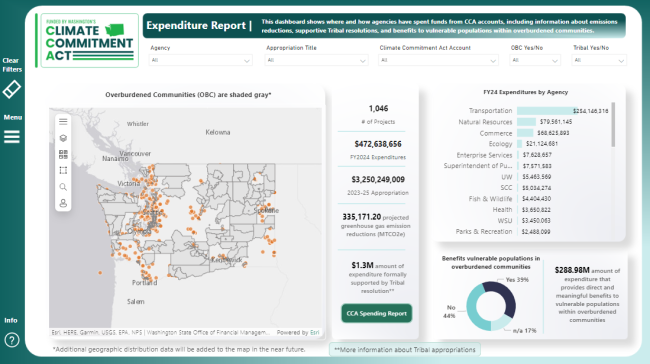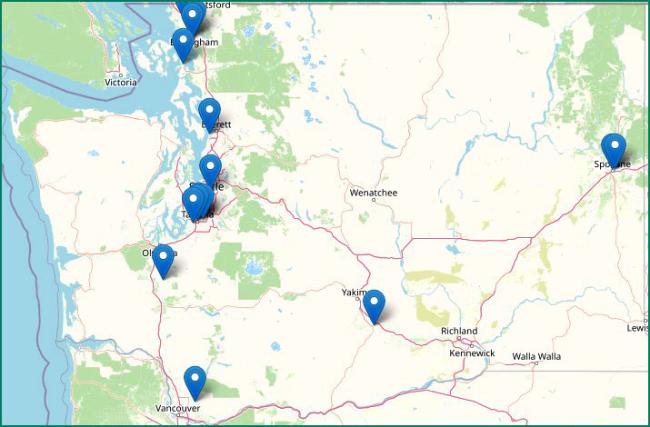In 2021, Gov. Jay Inslee signed the Climate Commitment Act (CCA). The CCA created a market-based cap-and-invest program to require the state's largest polluters to reduce greenhouse gas pollution. The CCA is being put to work across Washington to benefit families, schools, workers and more.
Pollution payments are reinvested in Washington’s neighborhoods and communities
Visit the rebate and incentive page for information on how to participate in some of the CCA-supported programs below. FundHubWA is another resource for organizations seeking funding opportunities.
Protect student health and safety
- Safer sidewalks and crosswalks for those who walk or roll to school
- Energy upgrades and solar projects for school buildings to improve indoor air quality and comfort
- Grants to help school districts purchase electric school buses and charging infrastructure to replace diesel-powered school buses that increase childhood asthma rates
Reduce indoor air pollution and energy costs
- Expansion of the state’s weatherization program for thousands of low-income families to improve comfort and reduce utility bills
- Tens of thousands of heat pump installations in homes and apartments to eliminate toxic methane leaks and reduce indoor pollution
- Provide $200 electric utility credits to eligible low- and medium-income households
Reduce outdoor air pollution for workers and overburdened communities
- Workplace health and safety programs for outdoor workers exposed to extreme heat or wildfire smoke
- Support for transitioning to zero-emission medium- and heavy-duty commercial vehicles and drayage trucks – these will replace polluting diesel-powered trucks that are often routed through low-income communities
- Grants to build up shore power at ports so idling ships don’t burn bunker fuel and emit toxic emissions in nearby communities
- More trees in urban areas to reduce the impact of dangerous heat waves
Expand clean transportation options that reduce dirty smog
- Historic new funding for transit, including free transit, Amtrak and ferry rides for all youth under 18
- Funding for thousands of new electric vehicle charging stations across Washington state
- Incentives to help low-income customers lease or purchase an electric vehicle or e-bike
- Purchase of five new hybrid-electric ferries for Washington State Ferries and a new electric ferry for Anacortes-Guemes Island
Additional funding information:
- Overview of 2023-25 CCA appropriations (March 2024)
- Overview of 2023-25 CCA appropriations to benefit overburdened communities and Tribal-supported projects (June 2024)
Click the map on the left for a dashboard of where Climate Commitment Act funds have been awarded so far.
Click the map on the right for an interactive map where you can view stories showing projects in action.
How it works: Capping pollution, investing in Washington neighborhoods and communities
The CCA created a market-based cap-and-invest program designed to reduce greenhouse gas pollution. It works in two ways:
- Climate pollution is capped and reduced. The largest polluters in Washington state are required to purchase allowances -- the more they pollute, the more they must purchase. Over time as the cap on pollution goes down, fewer allowances are available. Polluters must find ways to operate more cleanly. This is the “cap” in cap-and-invest.
- The state reinvests payments from polluters back into communities. CCA funding helps more Washingtonians switch to climate-friendly options for their homes, schools, businesses, vehicles, and more. This is the “invest” in cap-and-invest.
The CCA also serves as a clean air program. A 2023 report by the Department of Ecology identified 16 communities in Washington state where air pollution is among the factors that make people sicker and die an average of 2.4 years earlier.
The Department of Ecology administers the CCA. Multiple agencies receive CCA funding to administer programs and projects.



